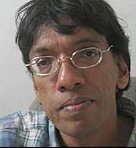The FUTA Option And Its Replicability
By Jehan Perera -August 27, 2012
 The public meeting last week by university academic staff led by the Federation of University Teachers Associations was a success both in terms of numbers who participated and the government’s response to it. The outcome of the event also points to the possibility of domestic pressure as against reliance on international pressure to make the government move. The modestly sized Hyde Park where the event took place has been a favourite site for public rallies and demonstrations organized by left and socialist parties in the past. This time it was members of universities, both staff and students, who filled most of the park. One of the achievements of the organizers was to get some 40 other groups to join the meeting. Those who were on the platform included the icon of the trade union movement Bala Tampoe of the Ceylon Mercantile Union, and the Ven. Maduluwave Sobitha, the convenor of a peoples movement towards a just and righteous society to bring democracy back to Sri Lanka.
The public meeting last week by university academic staff led by the Federation of University Teachers Associations was a success both in terms of numbers who participated and the government’s response to it. The outcome of the event also points to the possibility of domestic pressure as against reliance on international pressure to make the government move. The modestly sized Hyde Park where the event took place has been a favourite site for public rallies and demonstrations organized by left and socialist parties in the past. This time it was members of universities, both staff and students, who filled most of the park. One of the achievements of the organizers was to get some 40 other groups to join the meeting. Those who were on the platform included the icon of the trade union movement Bala Tampoe of the Ceylon Mercantile Union, and the Ven. Maduluwave Sobitha, the convenor of a peoples movement towards a just and righteous society to bring democracy back to Sri Lanka.
Unlike in the case of other protest meetings, most notably in the north of the country, the government made no visible attempt to obstruct the meeting at Hyde Park. There was no police submission to the courts to ban the meeting on the grounds of disturbance of the public peace nor an intimidating presence of security forces at the venue. The police however did close roads in the immediate vicinity of Hyde Park. This could have been to give greater freedom to those who attended the meeting to move to and fro without any possibility of clashes with those who may have been sent to disrupt the meeting or it could have been to prevent passing traffic from witnessing the meeting and joining it spontaneously.
For many who participated in the meeting, which was in effect a public rally, this would have been the first time in many years that they had engaged in a public protest-oriented activity. After the war entered its final phase in about 2007 there were real concerns about large public events, as they could be easily targeted for high cost terrorist activities. After the war’s end, the memory of its harsh end and the ruthlessness of the anti-terrorist campaign, which on occasion spilled over into acts of terror against even non-militant government opponents, chilled the enthusiasm for mass mobilization by civil society. For the past several years the public mobilization that has taken place has been by political parties.

